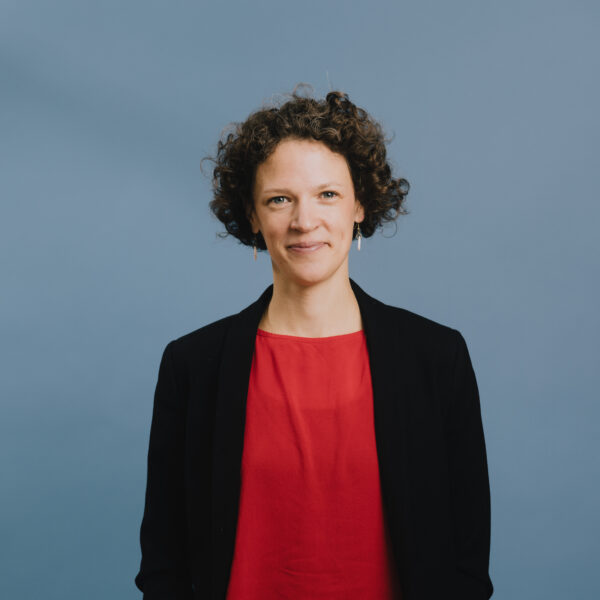We have spent the last two weeks around the world – in Colombia, Kenya and Indonesia and online – talking about power in many different forms – from de-concentrating data and digitalisation, to decolonising aid and organisational structures, and embracing new power. Global Perspectives 2021 again gave the Centre’s communities the opportunity to immerse themselves in themes and workshops, discussing strategies to address key trends, challenges and opportunities to shift power across the civil society sector.
We’re still digesting everything we heard throughout two intense, thought-provoking weeks, but here are some key takeaways we can all put into practice immediately:
1. Collaborate to be better champions of digital and data equity for others
Information and communications technology has a huge role to play as an empowerment tool in power shift and decolonisation for civil society to generate its own solutions, knowledge and information transfer. Building both grassroots and organisational digital skills and security and championing data privacy and equity in advocacy and programming work is essential. But to do this better, civil society organisations (CSOs) need to establish a basic understanding of emerging technological developments and their implications for digital rights and equity across all parts of an organisation. They also need to build stronger networks and work closely with expert tech/rights CSOs, academia and researchers to understand these issues and laws, and challenge big tech narratives about the magic of emerging technologies, and promote and develop more local- or regionalised research and bodies of knowledge on digital developments.
As our opening keynote speaker for Day 4, Nanjira Sambuli of the UNSG’s High-Level Panel For Digital Cooperation compellingly reminded us, civil society has a collective moral responsibility to understand and sound the alarm on the adverse social harms and outcomes of unproven technologies. After all, algorithms are ‘opinions embedded in code’, fashioned in the image of their creators rather than the hyperlocal actors around the world who live the complex realities of these ‘unintended consequences’ further down the line.
2. Engage new mindsets – centralise care not charity and learn to walk behind
We heard calls to abandon charity mindsets and appreciate the agency of communities, and an inspiring challenge to ‘centralise care as the major currency’ to redistribute power. We heard experiences from other sectors which are decolonising – research, architecture and local government – on the need to learn to walk behind and be led by the communities we work with before we can even properly understand how to walk alongside them. We heard from ActionAid how we can change fundraising imagery and narratives from emphasising difference – with single stories that stereotype people and invoke pity – to making a difference. They shared Development Engagement Lab’s compelling evidence that positive and negative funding appeals raise the same amount of money, but positive appeals inspire efficacy and higher emotional engagement from the feeling that one can make a difference.
3. Assess what it means to be locally led and what changes organisations can make to embrace new power values
Many CSOs see themselves as embracing new power values, but as being stuck in hierarchical, linear, old power models. Some international CSOs shared how deep engagement with their constituencies have challenged questions around legitimacy and led to reflections on the power of their organisations, their own expectations, the difficulty of giving up control and the need to consider and change linear paths of thinking and decision-making. We heard calls for how local organisations should push back on donor demands and also say no to international CSO partnership interest where these mean too much compromise in their delivery of people-driven solutions. All organisations should assess what being locally led means to them and the realities of the changes, compromises and constraints they are able and willing to bring about or have to accept.
4. Ask ourselves and others ‘who is we?’ when offering solutions
Shannon Paige of Peace Direct, Casey Harden from World YWCA and Stella Agara from YouLead Africa all highlighted in different ways this simple but profound self-challenge which we can all put into practice immediately in our work. What does it mean if your organisation is recognised internationally and regionally, but communities around the area where you work don’t think you’re legitimate? How are CSOs tapping into the spaces of community knowledge and indigenous solutions and ensuring that the activities they are funding are promoting these solutions which already work, and not erasing them or compromising the problem? Like World YWCA, ‘who is we?’ is a fundamental question for everyone – local CSOs, international CSOs and donors alike – to constantly ask themselves and each other. This will help organisations to truly understand both their identity and integrity as a solution grower with their community, on whose behalf they may be managing external resources ‘in trust’ to bring those solutions about.
5. Seek, share and offer solutions to shift power
In her closing speech, Stella Agara reminded us that decolonisation is also about content and not just process – are fundamental equity issues like climate justice and tax justice making their way into these conversations? We need to be sure that we are really solving problems and root causes through our work, rather than running programmes which are just maintaining a resourced and running civil society sector.
We also need to acknowledge that there are different framings of these issues – for instance, concepts of ‘decolonising aid’ did not resonate with participants in the Latin American and Caribbean workshop, who preferred the term ‘deconstructing’. But for others, the experience of colonisation is still very present in the international civil society sector. Accepting these contextual differences is important, while still sharing ideas and ambitions, and build collective wisdom and practical ways forward to truly challenge and change power systems, structures and narratives.
When it comes to offering solutions to shifting power, ‘who is we?’ is clearly everyone.
6. Join or promote these inspiring calls to action right away
Our workshops focused on how civil society organisations can shift power. At the end of the conference, we heard ten inspiring ‘calls to action’ of collaborative projects that aim to do just that. We encourage you to check them out, even if you didn’t attend:
Access Now – #WhyID, a global coalition of CSOs, activists, technologists, researchers, lawyers, and other digital identity experts, to fight back against the dangerous wave of centralised digital identity systems appearing around the world, and to advocate for rights-respecting approaches to identity management. Sign the #WhyID open letter.
<A+> Alliance for Inclusive Algorithms is a global and multidisciplinary feminist coalition of academics, activists and technologists prototyping the future of AI. Call to Action on decolonising tech and creating new models of equality and systems change. Submit your paper.
Civic Tech Innovation Network (CTIN) is a Community of Practice and action learning network for people with an interest and commitment to leveraging the nexus between technology and civic activism. Learn more about the network.
CIVICUS Grassroots Revolution and the Shift The Power UK Funders Collective are strategic streams of work aimed at improving funder relations, ways of work and power dynamics with grassroots activists and movements left behind, marginalised and most impacted by structural inequities. Join the grassroots-led movement and learn more about the Youth Action Lab.
Connect Humanity supports, catalyses, and scales holistic solutions providing people with the internet access and means needed to participate fully in a digital society. Learn more about the support they provide.
Purposeful is a feminist hub for girls activism, rooted in Africa and working worldwide, calling all girls groups and collectives interested in funding opportunities and connecting with other girl activists in their region. Submit your profile.
Red S.O.S Aldeas Infantiles: The initiative was created to promote and support spaces for participation, mobilisation and citizenship for young people in Bogota. Learn more.
Rights CoLab advances human rights by fostering collaboration among experts across the fields of civil society, technology, business, and finance. Fill out the Google form to express interest in engaging with the ‘RINGO‘ project.
“Stopping As Success: Locally Led Transitions in Development” (SAS+) seek to learn how to facilitate responsible development transitions from international to local actors. Explore SAS+ resources.
TechSoup’s Hive Mind is a cutting-edge online harbour and community of practice gathering activists, journalists, CSOs, teachers, university students, and a wider community interested in learning more about improving media literacy skills online countering disinformation, digital safety and security, and creating positive narratives. Get inspired.
Read the full outcome from our six days of convening here.
We hope everyone enjoyed Global Perspectives 2021. If you have any questions, please don’t hesitate to get in touch.






